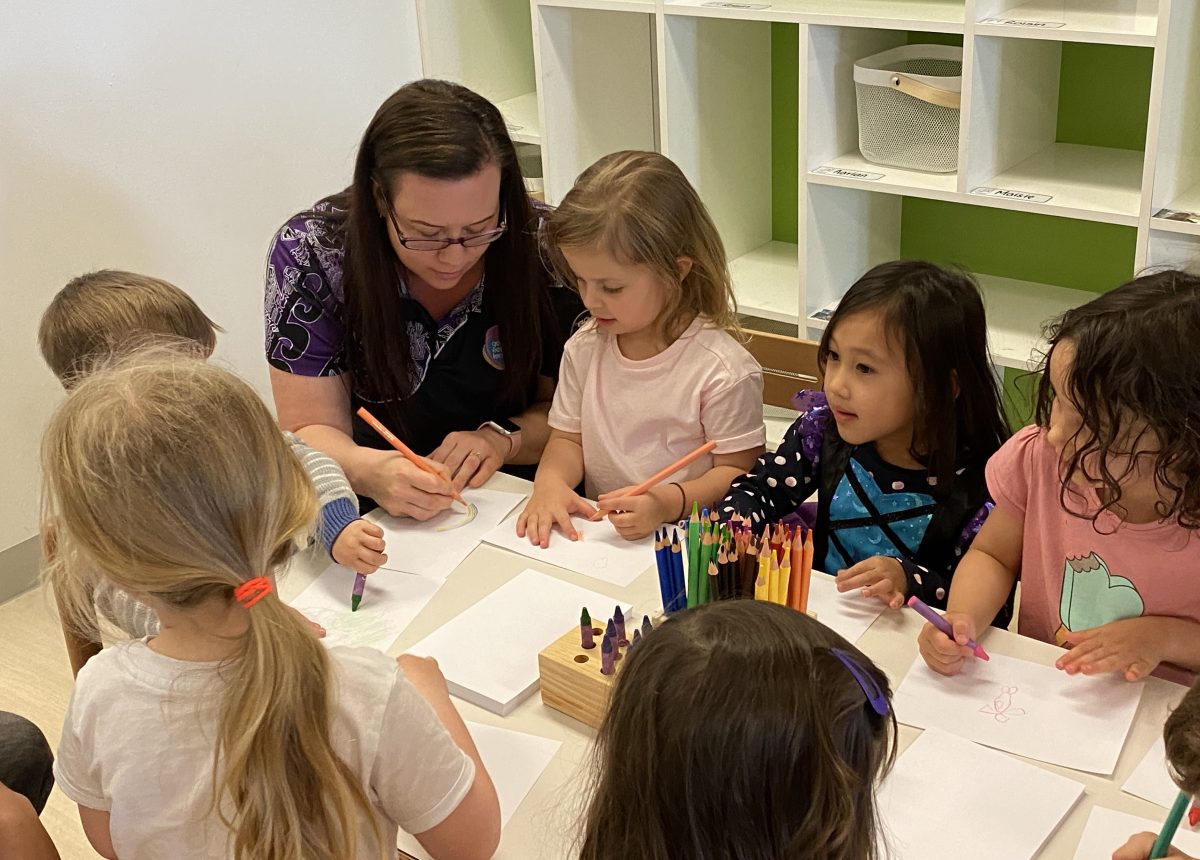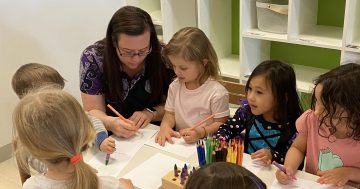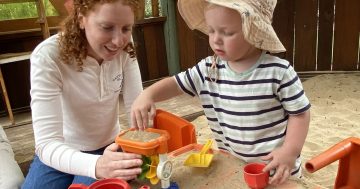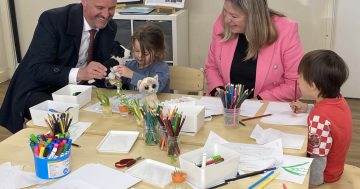
Goodstart centre director Catherine Konkoly is excited her profession will be recognised in ACT law. Photo: Claire Fenwicke.
They’re instrumental in the development and learning of our youngest minds, but the qualifications of early childhood educators haven’t been adequately recognised.
That’s about the change under the Territory’s Education Act 2004.
It’s just one reform outlined in the newly launched Valuing Educators, Values Children: A Workforce Strategy for the ACT Early Childhood Education and Care Profession (2023-25), which outlines a range of actions to be delivered over the next two years.
For Goodstart centre director Catherine Konkoly, it’s a positive step in the right direction.
“I’ve been in early learning for 16 years now, and to initially be called a babysitter or ‘just a carer’ is not the nicest thing,” she said.
“We go through university and it is a long haul to get to this position, so we’re very excited to have this [strategy] come out.
“It means we are recognised as professionals.”
The strategy has four focus areas: sector support, capability building, career pathways and professional recognition.
Professional recognition has workers and advocates hopeful it will lead to meaningful change in how early childhood educators are perceived.
Education and Early Childhood Development Minister Yvette Berry said to value early childhood learning, educators had to be recognised appropriately.
“Teachers are teachers wherever they teach – in early childhood or in primary schools or in high schools – so we want to recognise that,” she said.
Early childhood educators will also be able to register as teachers with the Teacher Quality Institute as a result of the change.
While the law change is only applicable to early childhood educators who have completed a university degree, United Workers Union delegate Leane Townrow – who is also a director of a Canberra childcare centre – said they have been striving for recognition of the workforce for the past two decades.
“If one of us is being recognised, then the rest of the sector is being recognised, so it’s a good start,” she said.
It’s also hoped this will have influence at a national level, where multi-enterprise bargaining agreement negotiations are ongoing.
“We’ve been working diligently on this for years, so the fact that we’re making wins in local government and hopefully national government is good,” Ms Townrow said.
Early Childhood Australia CEO Sam Page said recognition also provided a good foundation towards more workforce retention.
“Without the early childhood workforce, Canberra grinds to a halt … it’s the early childhood educators and teachers who come to work every day that keep all the other families working,” she said.
“Teachers are teachers, they have the same degree, they do just as important work in early childhood settings as they do in schools, so we really do need to address wages and conditions.”
Ms Page explained that while wages had increased over the past 10 years, they still weren’t on par for the work being performed because of the increase in standards and qualification requirements.
“The issue has been that we still have a disconnection between the value of the work in early childhood and the value of the work of teachers and other professions with similar qualifications,” she said.
“So we do need a structural change to address that.”
The strategy also supports the ACT Government Early Childhood Degree Scholarship Program.
The program supports educators in the workplace and university with flexible arrangements so they wouldn’t lose wages while undertaking mandatory practical placements.
Goodstart Early Learning Isaacs assistant director Francis Aparta is one recipient of the scholarship, which is helping him study for his Early Childhood Teaching degree.
Receiving the scholarship means he can finish his degree faster, enabling him to deliver better quality education and care to the children at his centre.
“It really helped in terms of tuition fees and expenditures with books,” he said.
“I have two daughters, so I have to provide for them, so it really helped.”
The strategy comes as the ACT Government continues moving towards implementing universal free three-year-old preschool in January 2024, providing eligible families with up to 300 hours a year of free early childhood education.
Amendments to the Education Act 2004 will be introduced before the end of the year, while a working group will be formed to implement the other actions contained in the strategy.





















